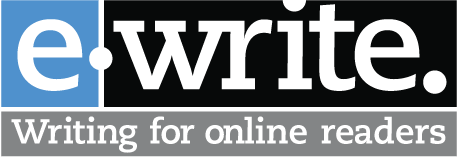I’ve been a writing teacher for 25 years, and I’ve taught in just about every setting you can imagine: high schools and colleges, contact centers, corporate boardrooms, libraries, power companies, and even a plastic cup manufacturing plant. (Don’t ask.)
Lately I have been providing one-on-one writing coaching for staff at the National Association of Realtors, the College Board, the American Society of Civil Engineers, Pan American Health Organization and, soon, the National Museum of the American Indian. Usually, I meet with the coach-ee in person for an hour and then follow up with weekly coaching sessions by phone. I have found these coaching sessions so professionally satisfying and so productive that I took some time to reflect on coaching. Here are the five truths I’ve learned in my role as writing coach:
- People suffer tremendous doubt about their ability to write well enough on the job. In fact, there’s so much suffering going on that I am sometimes surprised anyone gets any writing done at all. In these do-more-with-less times, people suffer because they have too many writing tasks to complete in too little time. But they also suffer because they are quite sure they don’t write well enough, and they dread the inevitable exposure. They’re convinced that everyone else finds writing easy, that not being able to write well has held them back professionally, that it’s better to reuse the old version of whatever they must write than to risk writing it their own way and doing it wrong. Coaching helps them suffer a bit less, and, as we all know, it’s hard to be productive if you’re in pain.
- Good writers are made, not born. The people I work with become better writers during our coaching sessions. The direct, individualized instruction combined with my nurturing of their confidence helps them break bad writing habits and build new, successful ones. After coaching, they write more quickly, more effectively. They suffer less. In short, they improve. Certainly there are some writers whose eloquence and grace are innate, but most workplace writers become better the old-fashioned way: instruction + practice + feedback. I’ve never met a person who couldn’t improve his or her writing skills, and I have found that coaching is one of the best ways to “make” a better writer.
- Managers should provide employees with model documents. Most of the people I coach are eager (desperate?) for models of the types of documents they must write. They would really like to see a sample of what their managers consider a model report, memo, or e-mail. They want to please their managers. They are willing to adopt their manager’s writing style, even succumb to the manager’s whims, but they need to know what their managers want. But many managers stubbornly refuse to provide models. They think that the writer shouldn’t need a model or that a model will stifle creativity and initiative. Some managers won’t provide a model document, or a sample of what they’re looking for, because they don’t know what they want. In essence, they exploiting the writer in their requests for multiple drafts. My experiences as a writing coach have proven to me that managers who provide model documents set their writers up for success. (Not to mention that providing a model keeps the manager honest…)
- Specific praise leads to improvement. Negative comments they’ve received on their writing have actually made most people so cynical that they perceive praise as nothing more than the moving walkway toward criticism. When their managers say “Your first draft is pretty good,” they hear “Now that we’ve gotten the thin compliment out of the way, let’s get down to some hard-hitting criticism.” During coaching, I take the time to let my client know exactly what he or she is doing well. I never give vague praise. I never say “This is a good draft of the memo” without continuing “because you’ve used headings to make it scannable, and you’ve included a few well-chosen statistics, such as annual income, to convince your reader.” Specific praise is practical as well as “nice.” Once writers clearly understand which successful writing tactics they have under their belts, they will repeat and adapt these tactics in new situations.
- Intimacy fosters learning. Usually, I do the first coaching session in person and the rest by phone. Because two-way, active listening is easier on the phone, these sessions are intimate, calm, engaged, and personal. I’ve received, and kept, many confidences during writing coaching sessions. I’ve been privy to people’s fears and shared in their accomplishments. Coaching has been an honor for me because my clients have been so open.
Writing coaching works. I’m amazed at how much we accomplish in each coaching session. One participant wrote me an e-mail after our last session. She said:
“Thank you so much for your help today. I find our discussions valuable and I hope it doesn’t seem too much like a therapy session! It is really helpful for me to discuss these issues with some who can be objective and honest. Your advice and suggestions have been great.”
So gratifying!
— Leslie O’Flahavan
Tags: Writing






0 Comments